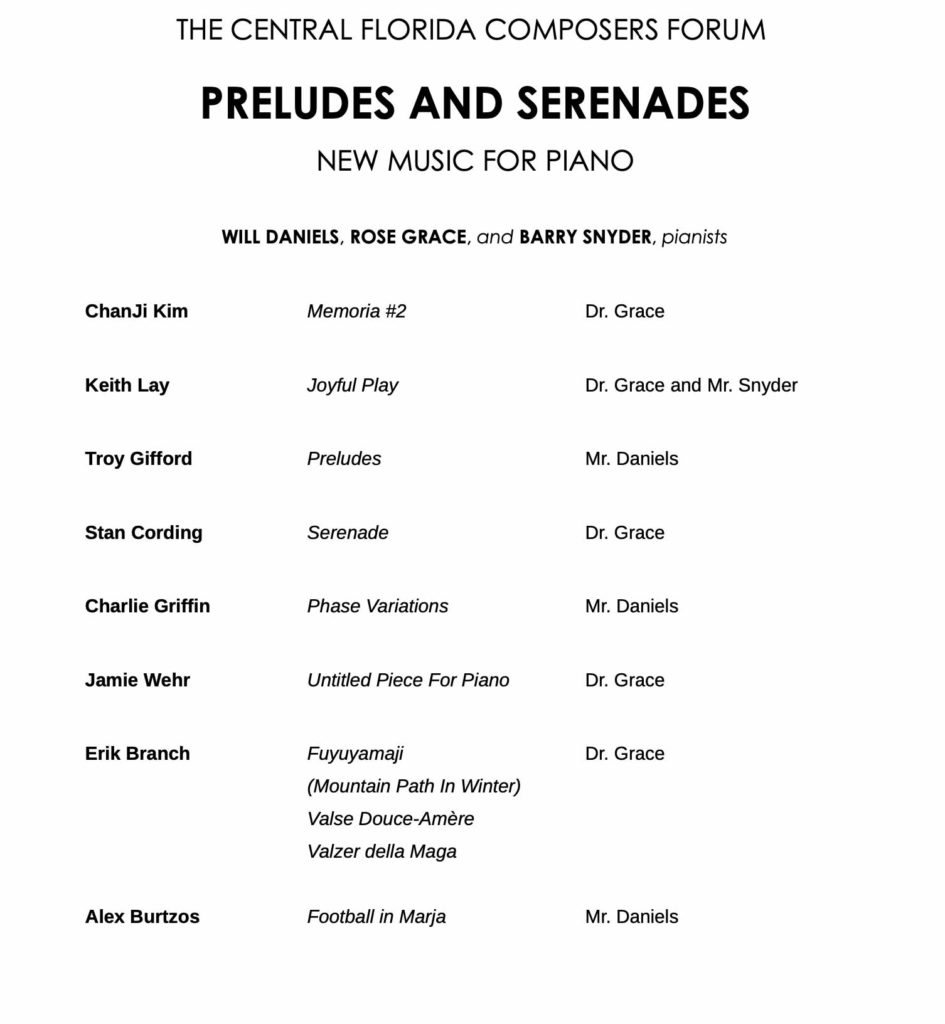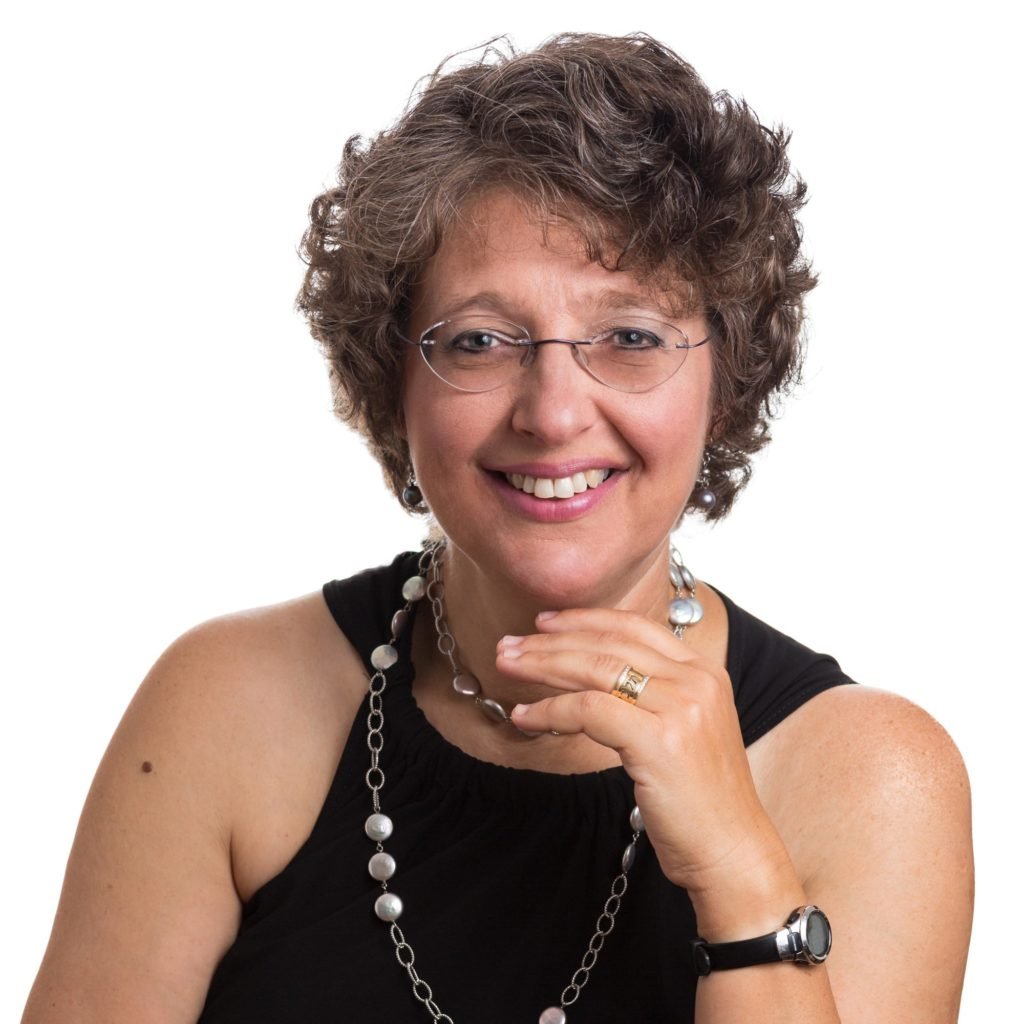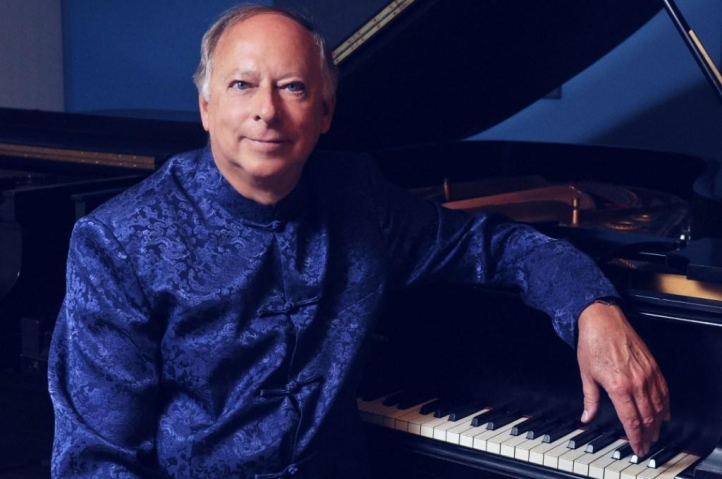
Joyful Play is the four-hands piano adaptation of the opening movement of “Children On the Playground” for Solo Violin and Strings’ performed by my dear friend and supporter, Rose Grace and Barry Snyder.
Just like the concerto, this movement portrays an eight-year-old alpha kid leading a mini- mob of friends. They conjure up something grand and vivid on a schoolyard or in a park somewhere, imaginations sparked and inspired into epic megalomaniacal glory so typical of kids. A short cadenza brings them back down to reality, and the fun continues. I felt the traditional sonata form suited this story nicely.


Rose Shlyam Grace, a Russian-born pianist, has concertized throughout the United States as a soloist and chamber music recitalist. In recent years, Miss Grace has been a featured artist and guest presenter at several music conferences, including the International PAMA Symposiums in NYC, the National MTNA Conferences and the Florida Flute Association Conventions. This coming summer, Rose Grace and Terrance Lane were featured as conference presenters at the International Conference on Interdisciplinary Social Sciences in Oxford, UK, and International Conference on new Directions in the Humanities in Madrid, Spain.
Miss Grace serves as an Associate Professor of Piano at Bethune-Cookman University in Daytona Beach, Florida. She is the founder and director of the B-CU Music Outreach Program, featuring college music students in live presentations of classical music throughout the Volusia County Public Schools, for which the Florida Department of Cultural Affairs presented her with the Diversity and Inclusion Award in 2017. In February 2021, Rose Grace and the B-CU Music Department were awarded a generous grant from the Pabst Steinmetz Foundation to launch a new holistic arts, health and wellness training program in the state of Florida. This program is an extension of the Annual Music and Medicine Symposium, which Rose Grace and Diana Lee co-chair at Bethune-Cookman University for its students and the community at large. In the summer of 2021, the holistic arts and wellness program was featured in a national podcast through the “Arts for the Health of It” organization. In July 2021, Miss Grace joined the Dr. Mary McLeod Bethune Statuary Fund delegation and recent B-CU music graduates to perform for the celebration and dedication program of the marble statue in Pietrasanta, Italy, which will be later installed in the Capitol’s Statuary Hall in Washington, D.C.
During the summers, Miss Grace has taught at the Interlochen Center for the Arts Music Festival in Michigan, the Castleman Quartet Program in Fredonia, New York, and most recently, at the Buffet-Crampon Clarinet Academy in Jacksonville, FL, and the Blue Lake Music Festival in Michigan. Miss Grace served as a member of the 2018 MTNA National Conference Planning Committee, which was held at Walt Disney World in Florida. Shecan be heard on several recording labels, with a recent CD release on Albany Records entitled, Vibrations of Hope: Music of the New Millennium. She holds a DMA from the Eastman School of Music, an M.A. in Musicology from the University of Chicago, and a B.M from the Oberlin Conservatory of Music.
Barry Snyder is an internationally acclaimed pianist and teacher, whose entry onto the international stage came after winning three major prizes at the 1966 Van Cliburn International Piano Competition: Silver Medal, Pan American Union Award and the Chamber Music Prize.
Since then, Snyder has toured the world performing concerti, presenting solo collaborative recitals, and leading master classes. Snyder has performed with conductors such as Robert Shaw, Leopold Stokowski, David Zinman, Sixten Ehrling and Arthur Fiedler. His has appeared with such orchestras as the Detroit Symphony, Houston Symphony, Baltimore Symphony, Atlanta Symphony, Singapore Symphony, Rochester Philharmonic, Krakow Radio
Symphony , Brno Radio Symphony, Japan Philharmonic, Toronto Chamber Orchestra, and the Aspen Summer festival Orchestra. A well-known collaborator, Snyder has appeared with artists such as Hermann Prey, Jan DeGaetani, Zvi Zeitlin, Ani Kavafian, Sylvia Rosenberg, Bonita Boyd, Steven Doane, and the Chilingirian and Cleveland Quartets. Many of these collaborations can be heard in Snyder’s substantial discography of over fifty-five recordings.
Held in high esteem by the professional community, Snyder is a widely sought-after teacher. Since 1970, Snyder was Professor of Piano at the Eastman School of Music in Rochester, New York, and he is listed in the publication The Most Wanted Piano Teachers and has given master classes in the United States, Europe and Asia. As of 2018, Snyder became Professor Emeritus at Eastman and accepted an Adjunct Professor position at NYU.
As a juror, Snyder has chaired the jury for the World International Piano Competition in Cincinnati and was a member of the jury for the Glasgow Young Artists Competition.
Snyder is committed to performing 20th and 21st century repertoire, and has given world premieres of works by such composers as Sydney Hodkinson, Toshio Hosakawa and Augusta Read Thomas. Many compositions, such as those by Carter Pann and Verne Reynolds, have been written specifically for him.
Barry Snyder studied solo piano with renowned teachers Wilbur Hollman, Vladimir Sokoloff, and Cecile Genhart and studied chamber music with John Celentano and Brooks Smith.



